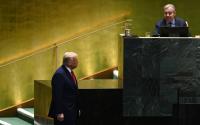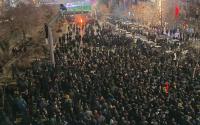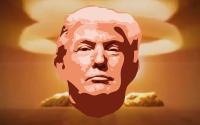Scientist 'gagged' by No 10 after warning of global warming threat
Steve Connor and Andrew Grice8 March 2004
Downing Street tried to muzzle the Government's top scientific adviser after he warned that global warming was a more serious threat than international terrorism.
Ivan Rogers, Mr Blair's principal private secretary, told Sir David King, the Prime Minister's chief scientist, to limit his contact with the media after he made outspoken comments about President George Bush's policy on climate change.
In January, Sir David wrote a scathing article in the American journal Science attacking Washington for failing to take climate change seriously. "In my view, climate change is the most severe problem we are facing today, more serious even than the threat of terrorism," he wrote.
Support for Sir David's view came yesterday from Hans Blix, the former United Nations chief weapons inspector, who said the environment was at least as important a threat as global terrorism. He told BBC1's Breakfast with Frost: "I think we still overestimate the danger of terror. There are other things that are of equal, if not greater, magnitude, like the environmental global risks."
Since Sir David's article in Science was published, No 10 has tried to limit the damage to Anglo-American relations by reining in the Prime Minister's chief scientist.
In a leaked memo, Mr Rogers ordered Sir David - a Cambridge University chemist who offers independent advice to ministers - to decline any interview requests from British and American newspapers and BBC Radio 4's Today .
"To accept such bids runs the risk of turning the debate into a sterile argument about whether or not climate change is a greater risk," Mr Rogers said in the memo, which was sent to Sir David's office in February. "This sort of discussion does not help us achieve our wider policy aims ahead of our G8 presidency [next year]." The move will be seized on by critics of Mr Blair's stance over the Iraq war as further evidence that he is too subservient to the Bush administration. It will also be seen as an attempt to bolster the Prime Minister's case for pre-emptive strikes to combat the threat of international terrorism, which he outlined in a speech on Friday.
Sir David, who is highly regarded by Mr Blair, has been primed with a list of 136 mock questions that the media could ask if they were able to get access to him, and the suggested answers he should be prepared to give. One question asks: "How do the number of deaths caused by climate change and terrorism compare?" The stated answer that Sir David is expected to give says: "The value of any comparison would be highly questionable - we are talking about threats that are intrinsically different."
If Sir David were to find himself pushed to decide whether terrorism or climate change was the greater threat, he was supposed to answer: "Both are serious and immediate problems for the world today." But this was not what Sir David said on the Today programme on 9 January when the Science article was published.
Asked to explain how he had come to the conclusion that global warming was more serious than terrorism, Sir David replied that his equation was "based on the number of fatalities that have already occurred" - implying that global warming has already killed more people than terrorism.
The leaked memo came to light after a computer disk was discovered by an American freelance journalist, Mike Martin, at the annual meeting of the American Association for the Advancement of Science in Seattle, where Sir David gave a lecture.
"The disk was lying on the top of a computer in the press room and I popped it into the machine to see what was on it," said Mr Martin, whose own article is published on the ScienceNow website, an online service operated by Science.
Mr Rogers' memo, written a few days before the Seattle conference, was aimed at limiting his exposure to questions from US and British media. While in Seattle, Sir David sat on a panel of scientists at one carefully stage-managed press conference, but his press office said he was too busy to give interviews afterwards to journalists.
Lucy Brunt-Jenner, Sir David's press officer, said she could not comment on internal government documents but said it would be wrong to suggest that Sir David was in any way muzzled. "Sir David had a press conference and he was available to the media at three times," Ms Brunt-Jenner said.
But Norman Baker, the Liberal Democrats' environment spokesman, said: "It's a clear attempt by the Prime Minister to keep Sir David quiet. The Government's chief scientist is the nation's chief scientist and I'd expect him to say what he thinks."
http://news.independent.co.uk/uk/environment/story.jsp?story=499013






